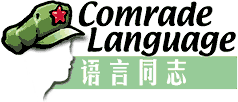Every international traveler should know their own blood type in case
they wake up naked in a hotel room bathtub filled with ice and a note
saying they're just had an internal organ or two surgically removed
without their
knowledge or consent.
Any laowai knows about the 'litany' of questions asked of foreigners
by Chinese people. "What country are you from?" "How old are you?" "How
long have you been in China?" "How much money do you make?" Any laowai
who speaks enough Chinese to get past the first round of questions has
probably gone on to the bonus round where they ask you "what's your
xuexing (blood type)?" Chinese people are ĂÔĐĹµÄ mixin de (superstitious).
They believe the number eight to be lucky because °Ë ba (eight) sounds
like ·˘ fa, which means rich, as in ·˘˛Ć facai (to get rich). They think
the number four is unlucky because ËÄ si sounds like ËŔ si, which means
death. They are convinced that if you put red paper in a storefront
window, the store will go out of business. After ×řŔÎ zuo lao (doing time
in jail), a Chinese person will immediately go home and take a bath
to wash away the bad luck. If a Chinese person says negative things,
he or she will put honey on the lips of a Buddha so the Buddha will
tell good things about the person to the spirits. Chinese people also
believe they will not get hit by a car because they have something known
as "the right of way". No matter how silly these superstitions may seem
to you, the Comrade highly recommends that all single (and 'married
but single’) guys familiarize themselves with these beliefs, as an understanding
of these and other Chinese superstitions will help you ĹÝć¤ paoniu (pick
up chicks).
For example, if you know what Chinese girls believe about the supposed
compatibility of people of various different zodiac signs and blood
types, you will know which sign and blood type you should claim to be
so that she will think you are 'compatible’ with her. Before getting
into the unfounded beliefs, the Comrade should first mention a bit about
the żĆѧ kexue (science) of blood types. In some ways, every person's
blood is the same foreigners' and Chinese people's (although Chinese
blood is slightly purer, more refined). But, when analyzed under a microscope,
big differences are visible. In the early 20th century, Austrian scientist
Karl Landsteiner classified blood according to those differences. He
was awarded the ŵ±´¶ű˝±˝đ nuobeier jiangjin (Nobel Prize) for his achievements.
Comrade Landsteiner observed two distinct chemical molecules present
on the surface of red blood cells. He labeled one molecule A’ and the
other molecule B’. If the cell had only A molecules on it, that blood
was called type A. If the cell had only B molecules on it, that blood
was called type B. If the cell had a mixture of both molecules, that
blood was called type AB. If the cell had neither molecule, that blood
was called type O. If two different blood types are mixed together,
the blood cells may begin to clump together in the blood vessels, causing
a potentially ÖÂĂü zhiming (fatal) situation. Therefore, it is important
that blood types be matched before blood transfusions take place. Every
international traveler should know their own blood type in case they
wake up naked in a hotel room bathtub filled with ice and a note saying
they're just had an internal organ or two surgically removed without
their knowledge or consent.
O ĐÍ xing (Type O)
Type O blood is considered to be the Ôbest’ blood type in China because
it is the most common. In an emergency, type O blood can be given because
it most likely to be accepted by all blood types. That's why a person
with type O blood is said to be a universal donor. But a person with
type O blood can only receive blood from another person with type O
blood. Despite their medical usefulness, type O people are ÍçąĚ wangu
(stubborn), łĺ¶Ż chongdong (impulsive), and Ëć±ă suibian (promiscuous).
Their redeeming quality is that they are loyal to their friends.
A ĐÍ xing (Type A)
A person with type A blood can ĎĘŃŞ xianxue (donate blood) to a person
with type A or type AB, and can receive blood from a person with type
A or type O. Type A people are ±ŁĘŘ baoshou (conservative) and ĎűĽ« xiaoji
(passive; inactive), and are concerned with Íâ±í waibiao (outer appearances).
Although type A people are superficial and have a touch of ÉńľÖĘ shenjingzhi
(mental instability), they are very patient and finish what they start.
B ĐÍ xing (Type B)
A person with type B blood can donate blood to a person with type B
or AB. A person with type B blood can receive blood from a person with
type B or O. Type B people get along well with others because they are
Ö±ÂĘ zhishuai (frank; straightforward), have no Ć«Ľű pianjian (prejudices)
and are noted for their ¶Ŕ´´ĐÔ duchuangxing (originality; creativity).
But type B people are also moody and fickle and become bored and annoyed
easily.
AB ĐÍ xing (Type AB)
A person with type AB blood can donate blood to a person with type AB
only, but can receive blood from anyone. A person with type AB blood
is said to be a universal receiver. People with blood type AB are the
most ĆćąÖ qiguai (weird) and superficial of all. They don't make a decision
until they have thoroughly considered every option for half a day. AB
people are ĚôĚŢ tiaoti (picky) and are known to ˝ď˝ďĽĆ˝Ď jinjin jijiao (nitpick
about insignificant matters). They are mentally unstable, keqiu (demanding)
and worry about petty µĂʧ deshi (gain and loss). Type AB people are also
impatient and have no ŇăÁ¦ yili (willpower). They are two-faced and coldhearted
social misfits. In next weeks' Comrade Language more superstitious nonsense:
The Chinese Zodiac Signs!
